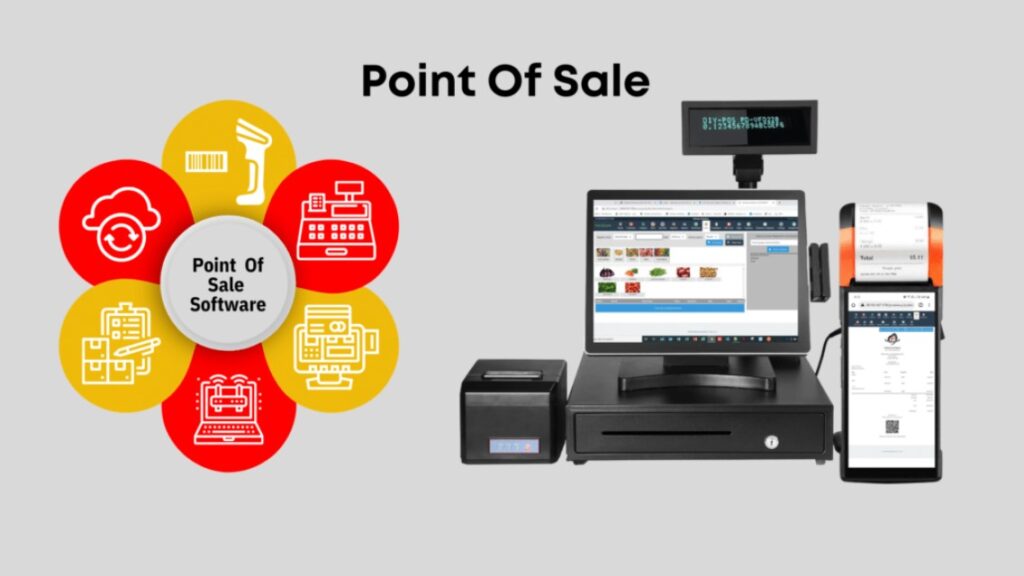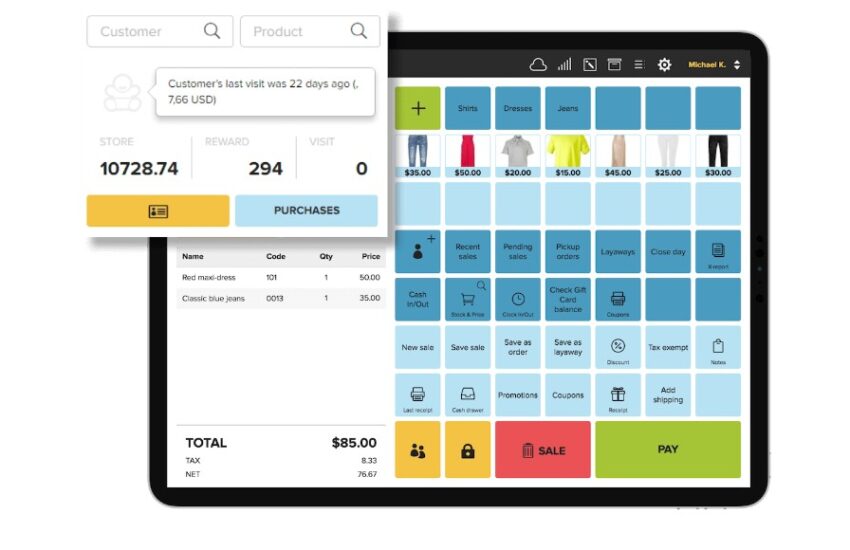In today’s rapidly evolving technological landscape, companies are constantly seeking innovative solutions to streamline and enhance their operations. One such solution is POS software, which enables businesses to process transactions quickly and efficiently at the point-of-sale. In this article, we will delve into the world of POS software and help you determine whether hiring POS software developers could benefit your business.
POS Software in Details
Point of Sale, or POS software, refers to a computer-based program utilized by businesses to process transactions at the point-of-sale, typically at the checkout counter or payment terminal. Its primary functions are managing inventory, sales, and customer data, while providing performance reports. POS software is popularly used in retail stores, restaurants, and other businesses that handle numerous transactions.
The main principle behind POS software is to automate and simplify the sales process while providing essential business insights. Upon a purchase, the software records the transaction, updates inventory levels, and calculates the total cost, including taxes and discounts. Additionally, the software handles payment processing, allowing various payment methods, including cash and credit cards.
For instance, a restaurant can use POS software to take customer orders, track ingredient inventory levels, and process payments. The software can generate reports on sales trends, popular menu items, and other key performance indicators, enabling the restaurant to make informed business decisions. For instance, adjusting menu items or promotions to increase sales.
In summary, POS software optimizes the sales process, minimizes errors, and discrepancies while providing invaluable data for businesses to make informed decisions and grow their operations.
How POS Software Benefits Businesses
Helps businesses manage their inventory.
Inventory management is a crucial aspect of business operations, and POS software can greatly assist with this task. With each transaction processed, the software automatically updates the inventory levels, accurately reflecting the items sold. This real-time tracking helps businesses stay on top of their stock levels and ensures they never run out of high-demand items.
Customer Services Improvement.
For example, some POS systems allow companies to track customer data, such as purchase history and preferences. This can help enterprises personalize their interactions with customers and offer tailored promotions or discounts.
POS software can also help corporations streamline their operations and reduce errors. For instance, instead of manually entering each item and price, a cashier can simply scan the barcode of each item using the POS system. This reduces the risk of errors and ensures that transactions are processed quickly and accurately.
Valuable data and insights for businesses.
By analyzing sales data, businesses can identify trends, track their performance, and make informed decisions about their operations. For instance, a restaurant might use sales data to identify its most popular menu items and adjust its menu accordingly.
Overall, POS software is a valuable tool for corporations that aim to streamline their operations, manage their inventory, and provide a better customer experience. With the right POS system in place, businesses can save time and money, reduce errors, and grow their operations.

Types of POS Systems
There are various types of point-of-sale systems, each with unique features and benefits. Businesses should carefully consider their needs and budget before selecting a POS system as each type has its own benefits and drawbacks.
№1. Desktop POS Systems
These are installed on desktop computers and are popular in сompanies of a modest or moderate scale. They offer features like inventory management, employee management, and reporting. For instance, Square POS and Lightspeed Retail.
№2. Mobile POS Systems
These are mobile apps that run on smartphones or tablets and are perfect for companies that operate on the go. They offer features like inventory management, payment processing, and analytics. Examples of such systems are Shopify POS and Vend.
№3. Cloud-based POS Systems
These are a type of software that operates on the internet, making them accessible from any device with an internet connection. They provide an array of features, such as management of inventory and employees, and real-time reporting. Toast POS and Clover are the best examples of cloud-based systems.
№4. Self-service interactive terminals POS systems
These are self-contained units that allow customers to place orders and make payments without the help of a staff member. They are popular in fast-food restaurants and cinemas. Examples include McDonald’s self-service interactive terminals and AMC Theatres’ self-service interactive terminals.
№5. Tablet POS systems
These are POS systems that run on tablets and are popular in small businesses and restaurants. They offer features like tableside ordering, payment processing, and inventory management. For instance, Revel POS and TouchBistro.
Fundamental Features
Businesses should consider their needs and budget when selecting a POS software with the right combination of features. A well-designed POS software includes the following features:
Inventory Management
The software should allow companies to track their inventory levels and generate alerts when stock is running low. It should also help businesses manage their purchase orders and suppliers. For instance, Lightspeed Retail and Square POS have advanced inventory management features.
Sales Reporting & Analytics
A good POS system should provide real-time sales data and analytics to help businesses make informed decisions. It should allow them to generate sales reports, track sales trends, and analyze their customer data.
Payment Processing
A POS software should be able to accept different payment types, including credit cards, debit cards, and mobile payments. Moreover, the system must be capable of splitting payments and issuing refunds. Clover and Vend have robust payment processing features.
Employee Management
the software should allow enterprises to manage their employees’ scheduling, time tracking, and commission tracking. It should also provide insights into employees’ performance. For example, Revel POS and TouchBistro have comprehensive employee management features.
Customer Relationship Management (CRM)
A point-of-sale software should allow corporations to collect customer data and build customer profiles. It should also provide businesses with tools to engage with their customers, such as email marketing and loyalty programs. Examples of POS software with CRM features include Lightspeed Retail and Square POS.
5 Key Factors for Developing a Successful POS Software
Developing high-quality POS software requires meticulous planning and attention to detail. To ensure the success of your POS software, consider the following recommendations:
- Understand your target market’s needs and pain points to make sure your software meets their requirements;
- Prioritize user experience by designing software that simplifies the sales process;
- Ensure strong security features are implemented, including encryption and multi-factor authentication;
- Offer customization options to meet specific business requirements;
- Provide excellent customer support to assist customers with any issues that may arise.
POS software can be a valuable tool for businesses, allowing them to streamline sales processes and gain insights into sales and inventory. As technology becomes increasingly important for businesses, the demand for POS systems is likely to continue to grow.
